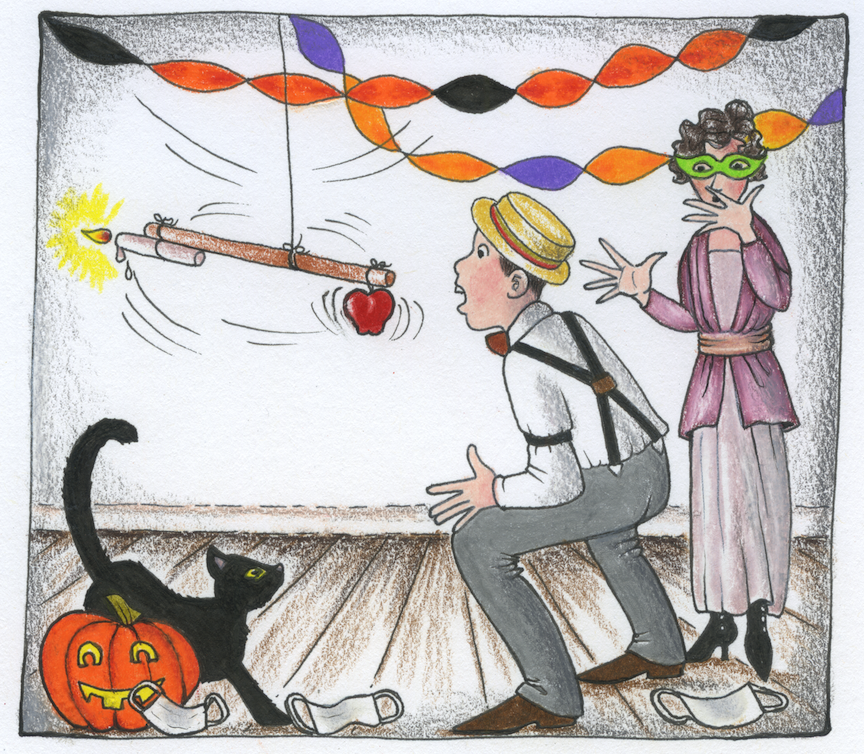In 1918, amid the deadly flu pandemic, Asheville’s health officials banned Halloween gatherings. (For more, see “Asheville Archives: The 1918 Influenza Changes Social Norms,” Oct. 31, 2020, Xpress.)
A year later, the city was eager to celebrate. “Denied the opportunity of making a mundane visit last year by reason of the prevalence of influenza, the ghosts doubtless will be here in large numbers this evening,” The Asheville Citizen reported on Oct. 31, 1919. “Mothers will see soiled sheets and damaged pillow cases.”
The youths, the paper continued, were eager to get out on the special holiday to perform pranks “that may be staged with impunity whereas any such behavior at any other time would prompt unpleasant sessions with parents.”
But the holiday was not “exclusively staged by juvenile exemplars,” the article added. “Many older persons will participate in the program of the evening. Especially interesting is the day of those who wish to ascertain some information as to the characteristics of future mates.”
Unlike today’s Halloween, past iterations focused more on romance than candy. One act, the paper reported, originated in Ireland and was performed to settle love affairs. Blindfolded, participants would pull cabbage from the patch as the clock struck midnight.
According to the article, “characteristics of husband or wife were discernible in the shape and outline of the cabbage stalks.” Furthermore, “The clinging of much earth to the roots was regarded as a sure sign that the husband or wife would be wealthy while clean roots indicated no less surely that poverty was imminent. The disposition of the mate could be ascertained by tasting the cabbage. A sweet taste denoted sweet disposition; a sour taste augured evil.”
Another unusual Halloween ritual involved an apple and a candle, the paper reported:
“In the old days, young people used to put a lighted candle on one end of a stick, an apple on the other and a string in the middle, suspending the stick, perfectly balanced, from the ceiling so that it might be whirled around. These participants in the game who could catch the apple in their mouths without being burned by the candle were to entertain no further doubts as to their chances of being married. Those who were burned were sure to remain single, it was believed.”
Untold in this article is how the candle remains lit as the stick spins. But alas!
For more former traditions, see our 2019 Halloween edition of Asheville Archives, “Halloween Superstitions Near the Start of the 20th Century.”
Happy hauntings, Asheville!
Editor’s note: Peculiarities of spelling and punctuation are preserved from the original documents.




Before you comment
The comments section is here to provide a platform for civil dialogue on the issues we face together as a local community. Xpress is committed to offering this platform for all voices, but when the tone of the discussion gets nasty or strays off topic, we believe many people choose not to participate. Xpress editors are determined to moderate comments to ensure a constructive interchange is maintained. All comments judged not to be in keeping with the spirit of civil discourse will be removed and repeat violators will be banned. See here for our terms of service. Thank you for being part of this effort to promote respectful discussion.